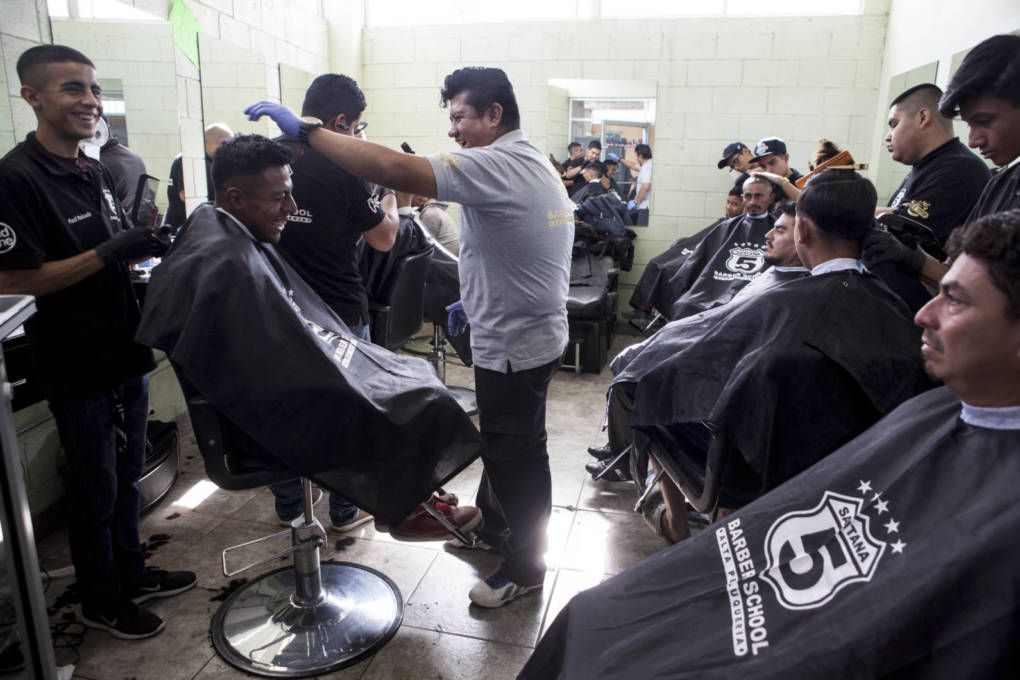Juan Velasquez had just arrived in Tijuana on the migrant caravan, and was sitting in the barber’s chair at Padre Chava. It’s a Catholic center that serves breakfast, and offers migrants the use of a phone and free haircuts.
“I want to look more elegant, more cleaned up, so people here see us as good citizens,” said Velasquez.
He was talking about the friction that has ramped up in Tijuana, as some local residents have scuffled with migrants on the beach near the border, shouting at them to “go home.”
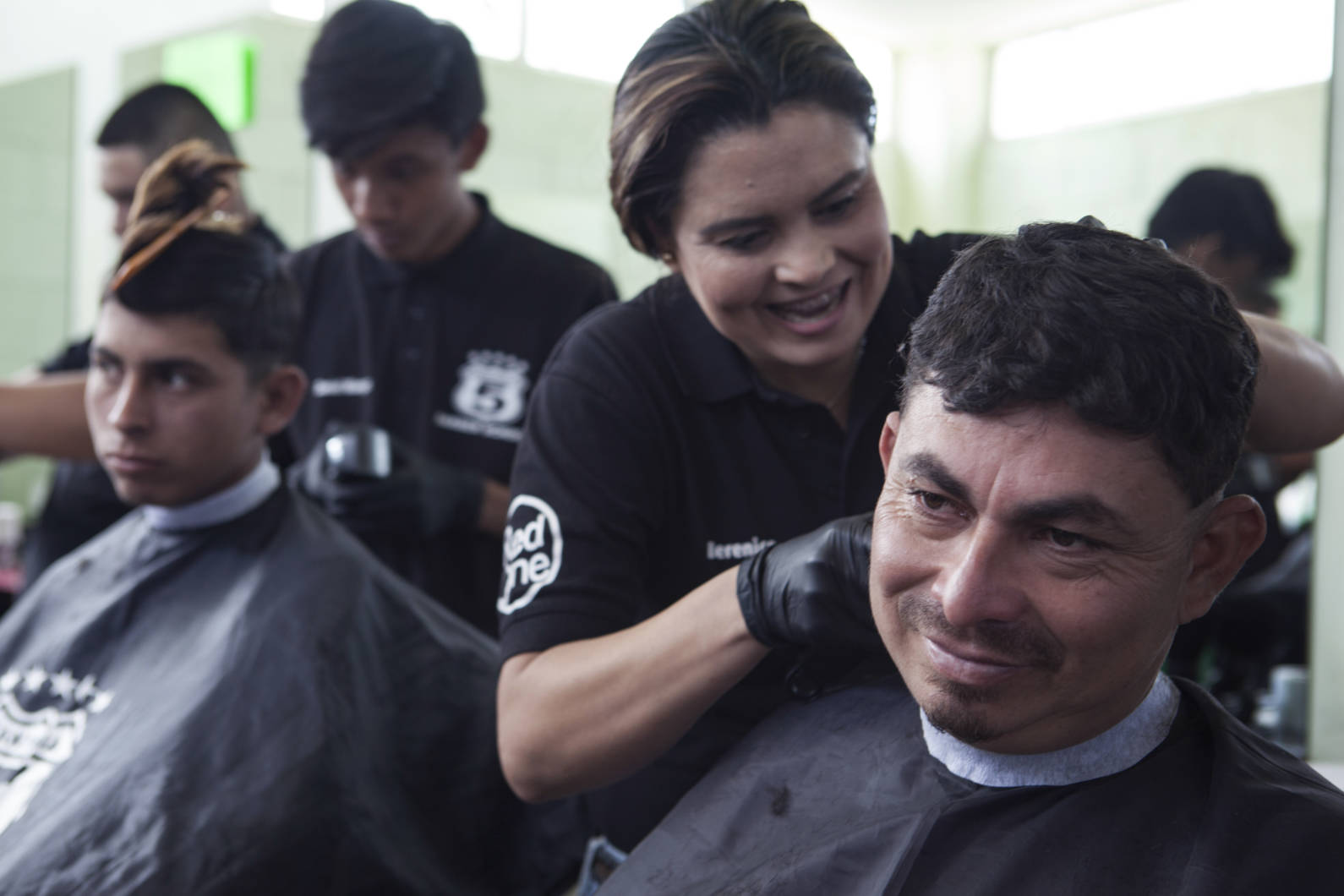
Velasquez wants people in Tijuana to see him and other migrants as “people who are dignified, respectful, clean-cut. We’re not robbing people, causing trouble. We’re just human beings.”
Tears welled up in his eyes, as a volunteer beauty school student buzzed his hair with clippers. He said his father and siblings were killed in gang violence in El Salvador. He said he’s the only one left, and he’s gotten death threats, too.
“I can’t go back to my country. If the U.S. deports me back to El Salvador, it would be like sending me into a death trap,” he said in Spanish.
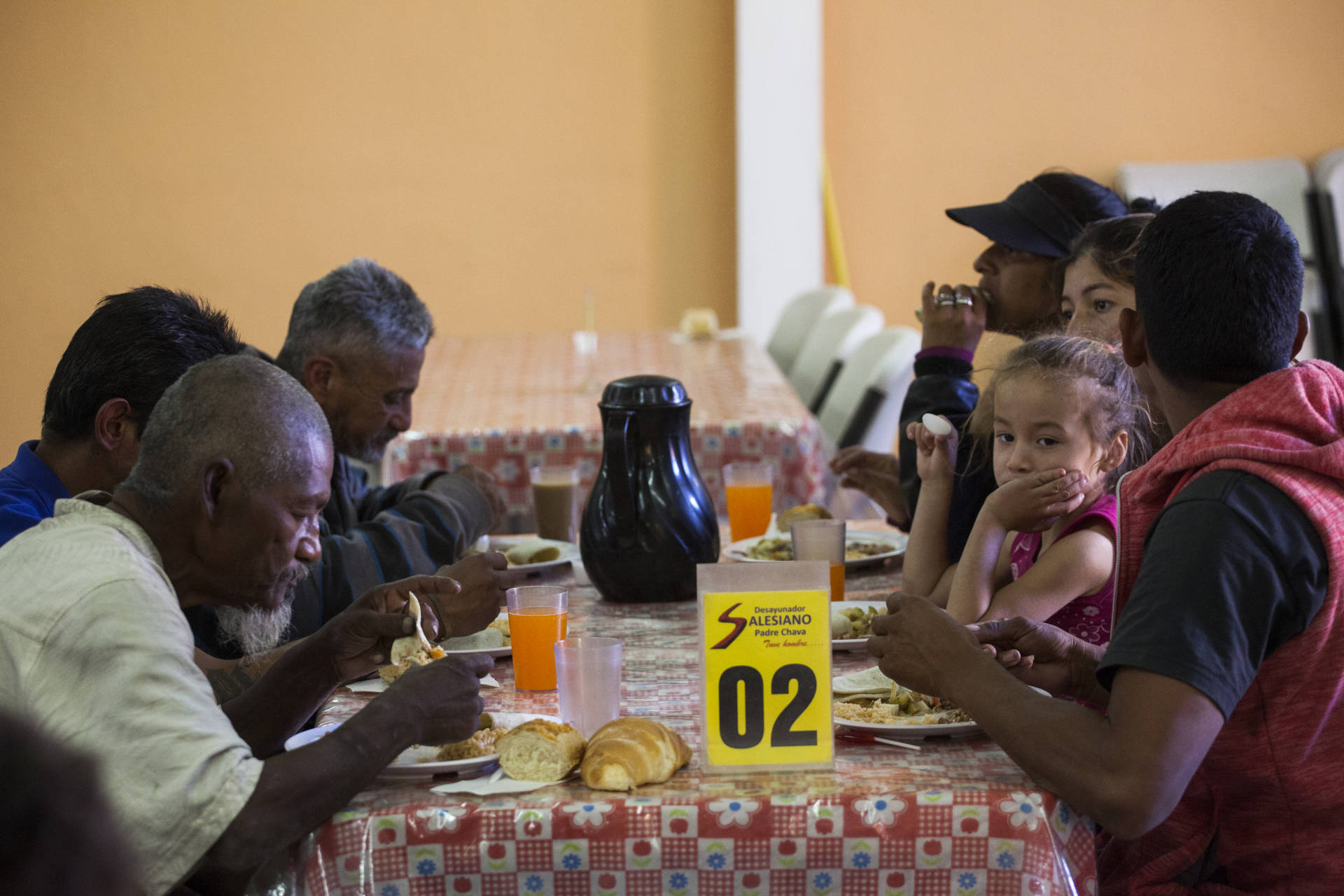
Busloads of migrants like Velasquez were dropped off at the Padre Chava center Thursday. But as of Friday, it’s closed for several days of long-planned building renovations.
That’s just part of the scramble to figure out where to feed and house migrants.
Instead of a triage effort, it could have been planned in advance, said Soraya Vasquez, with the Comite Estrategico de Ayuda Humanitaria Tijuana, a network of civic groups and activists that help migrants. She’s a lawyer who started the group when Haitian migrants began to arrive in Tijuana two years ago.
“The Haitians came so suddenly,” said Vasquez. “There was no planning. Here they’ve had a month. How is it that it’s a quarter to midnight and the government is just trying to figure out where to put people?”
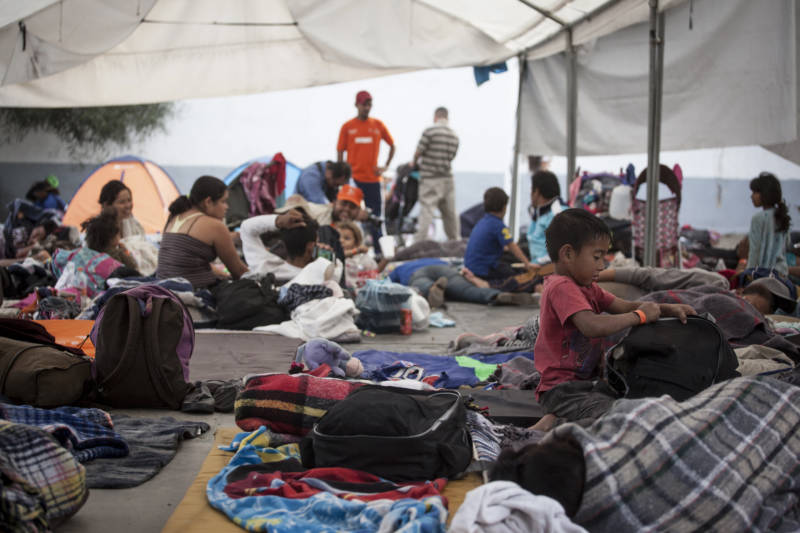
Vasquez thinks large spaces, rather than a patchwork of smaller shelters, are going to be more effective. The caravan is made up of several large delegations, who don’t seem to want to be separated. There’s also been some resistance from migrants who don’t like the rules at traditional shelters, requiring residents to come and go at certain times.
As of Wednesday night, the government did open up a sports complex for people to sleep in. On Thursday afternoon, a few hundred camping mats were laid out in a large gymnasium-like room, and many other people were setting out their bedrolls under stadium bleachers outdoors.
Some migrants put down their backpacks and started up a game of soccer. Kids gravitated to the small playground inside the sports complex, shrieking with delight as they zipped down the slide.
Government officials say the stadium can hold up to 3,000 people, but they are still trying to figure out bathrooms and sanitation.
“The plan is to first make sure we take care of their health,” said Francisco Rueda Gomez, secretary general for the state of Baja California.
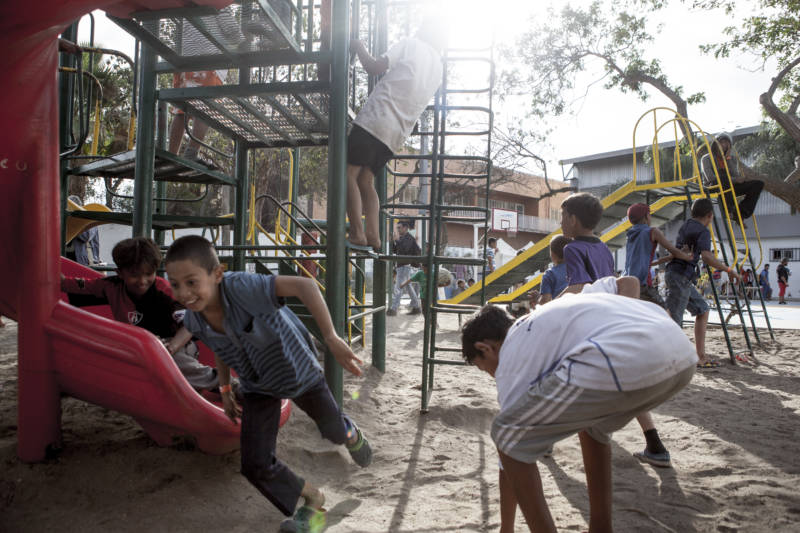
The state is asking the Mexican federal government for 80 million pesos in aid (about $4 million) to cover medicine, food and shelter. Rueda Gomez said local resources can only stretch for a week or 10 days. The migrants are likely to be in Tijuana for months, as they wait their turn to seek asylum in the U.S.
At the same time, the government and some community advocates are trying to counter the xenophobia and classism that’s ramping up, as some Tijuana residents blame the newly arrived Central Americans for leaving trash, acting rowdy, drinking or smoking marijuana. A few migrants have also provoked anger by jumping up on the border fence.
“It’s natural that some people are afraid, because it’s a huge number of people coming into the city,” said Vasquez, the migrant advocate. “The government didn’t do a good job of advising people when the caravans would get here and what it would look like. But that doesn’t justify calls for hate, exclusion and discrimination.”
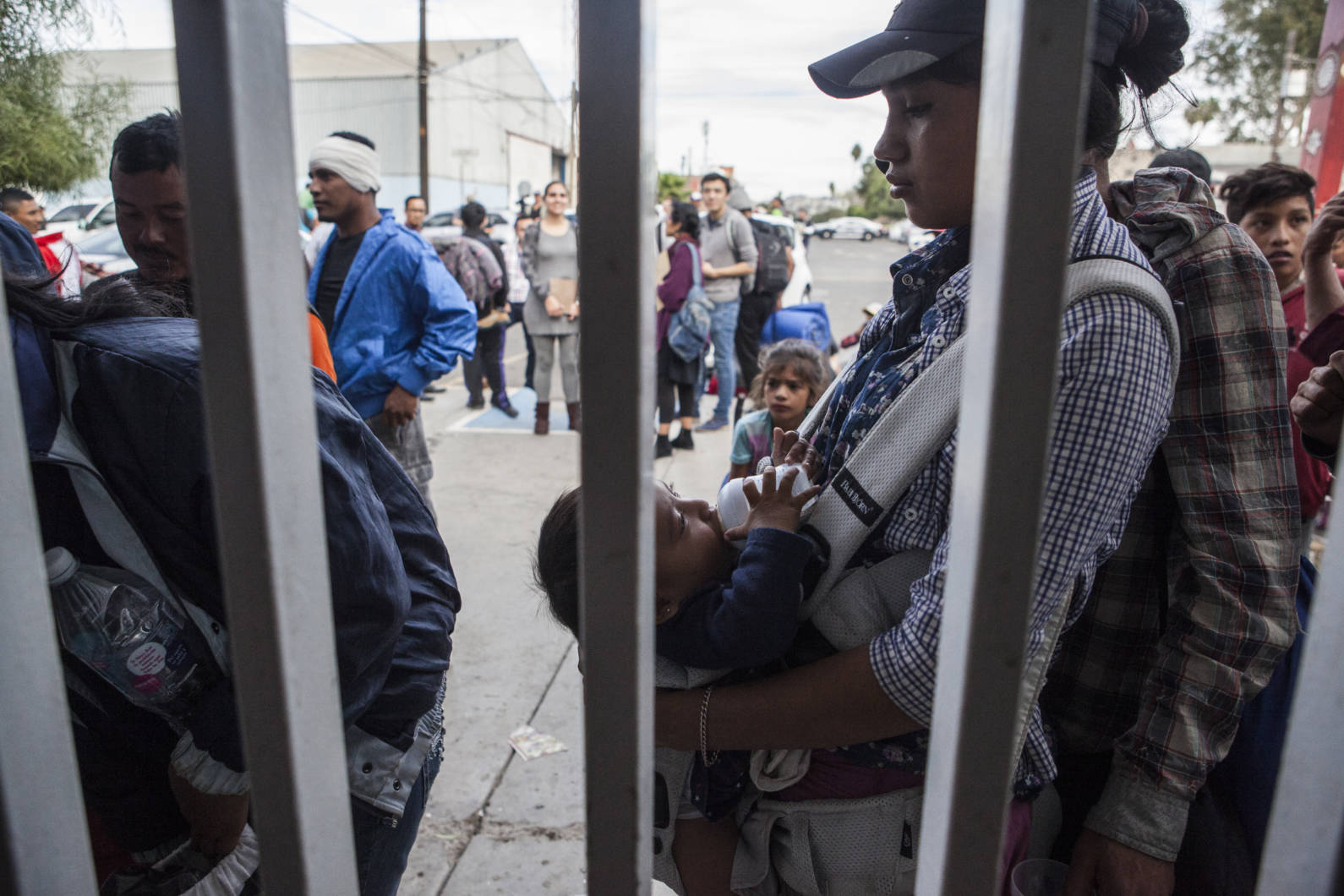
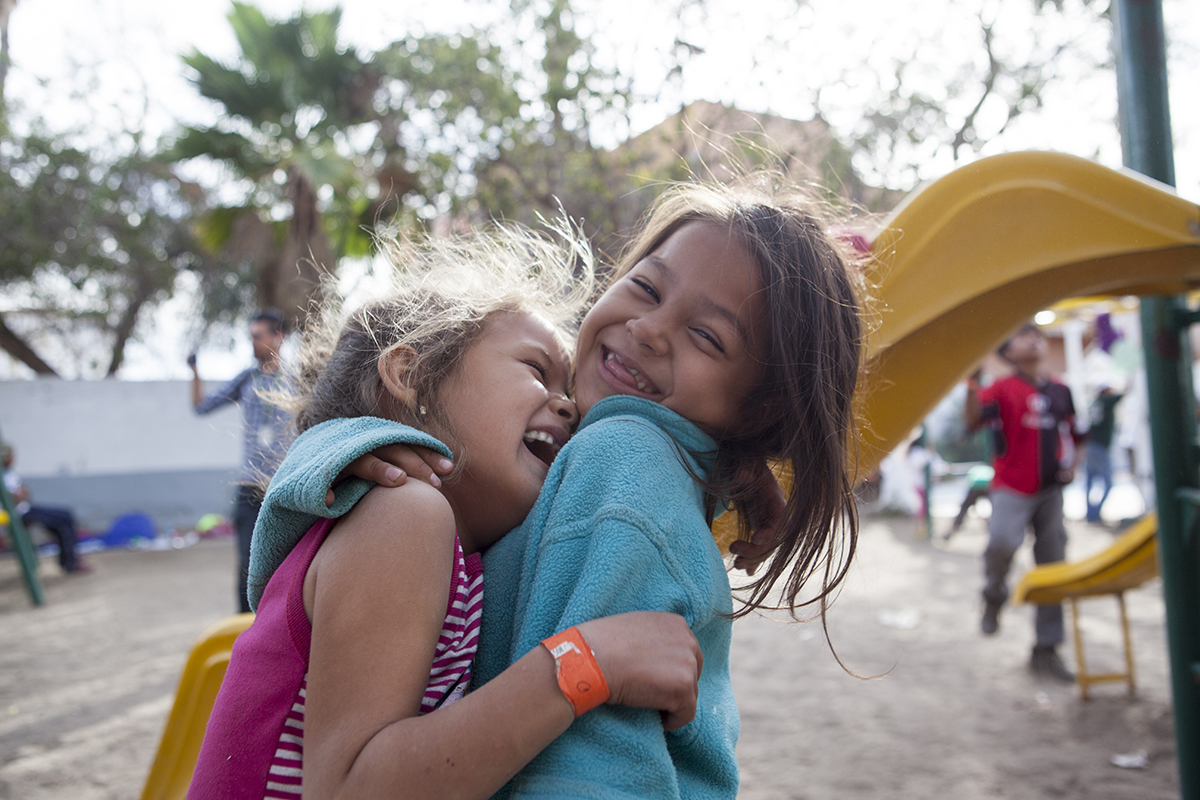
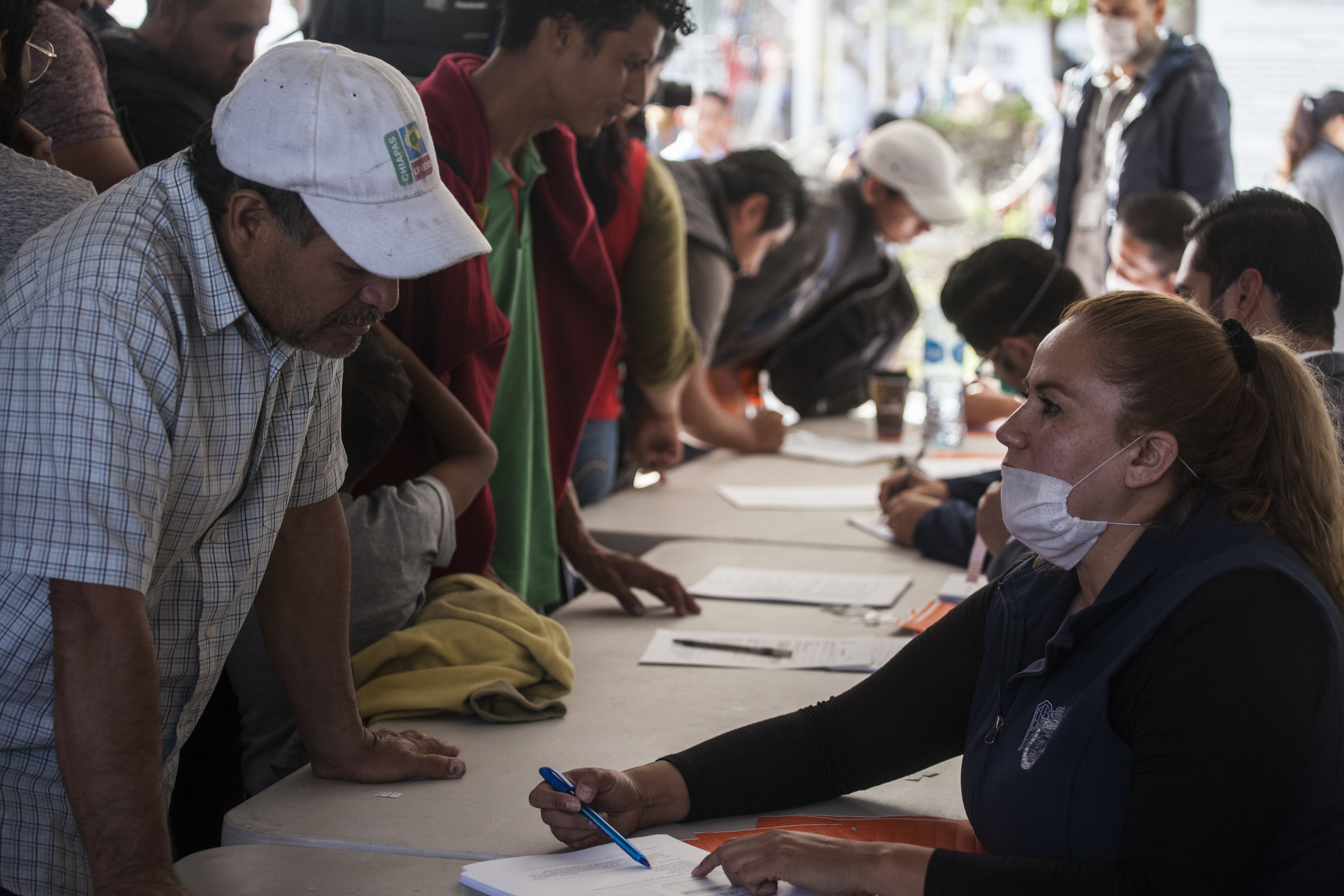
Vasquez said many in Tijuana are ready to donate blankets, and step in to assist the Central American migrants. In the case of the Haitians, churches and community groups all pitched in, and ultimately helped more than 3,000 Haitians settle in Tijuana and find jobs.
“Tijuana is a city of migrants,” said Rueda Gomez. “Everyone here is from somewhere else.”
“The migrants are welcome here in Mexico,” he said. “There’s plenty of work here in Baja California. We’re one of the states with the lowest unemployment rate in the country. If people want to stay here to work, there’s work. People here will be OK with that. People in Baja California are generous and will receive them well, as they as long as they respect our laws.”
